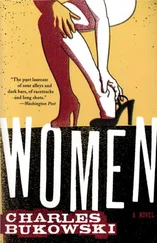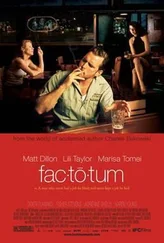No longer could he articulate a particular reason to stay on the streets, yet going home was not an option, not really, and so he passed long stretches in hiding, shuffling along, dragging his feet, trying to get to the next thing to get through, waiting for the day to be over, for the night to be over, bouncing between people who wanted as much from him as he needed from them, asking passersby for a few extra bucks, for spare change, for money to help get a room, could they spare some change for bus fare, a slice of pizza, could they spare a cigarette, a working pen. When Danger-Prone Daphney hadn't started showing yet, the two of them targeted rocker dudes who thought they could make Daphney. They targeted old people and hippy-looking college chicks with leather sandals and anyone else who looked like they'd be soft marks. Lestat would park himself right in the middle of an upscale shopping area with heavy foot traffic. He'd lean against a wall and watch the beautiful people toting their shopping bags and talking on their cell phones. Only instead of slinging his rap, Lestat would stare at the flow of lives he would never lead, whose comfort he would never know. People walked past and ignored Lestat and he resented them. Their eyes glanced over him and he despised them. Whenever pedestrians slowed down and reached for the places they kept their currency, wanting to know if he was okay, what Daphney's story was, whenever that happened, Lestat wished those fuckers were dead. Sitting on the curb out along Hollywood's hipster mecca of Melrose Avenue, the pointy bones of his ass would be sore, and Daphney would be rambling about this and that, and Lestat would look up at the palm trees that lined the sides of the street, and the way their clusters of leaves slumped toward the centers of the traffic median would have Lestat seeing the bowed, furry heads of repentant children. Would have him seeing hands clasped in prayer.
The sane sober businessman does not walk down the street talking out loud to himself, but the crazy homeless man does. And this, Lestat understood, was one of the fundamental differences between the two. Over time Lestat had also grown to understand how the former becomes the latter. How all your thoughts and frustrations can inch closer and closer toward one uninterrupted rant. How the chasm between a person and the world around him can grow, a shell forming between the life you once had and the life you are living.
Lestat had been out on the streets for fuck knew how long, and as he ran along the edge of this stupid-ass punk gig out in the Nevada desert, bulling through brush, he did not try to pick out the faces of people he knew. Lestat didn't want to see those ugly mugs, yet they were unavoidable all the same, fighting in the mosh pit, standing in the crowd, sitting on abandoned couches, wandering aimlessly, passing around bottles and joints, exchanging war stories — the stragglers, the outsiders, the dirty smelly weirdos who showed up at the party with no real connection and were always the last to leave, the forlorn ones who walked on the railroad tracks on the edge of the night and stood in the middle of moving traffic and tried to rinse a few more drops from the sadness that was their joy. Lestat recognized the faded gleam of their smiles. He remembered their smells. It was as if he had some kind of inbred detection system. He did not need to feel connected to them to be connected with them.He did not need to see their faces to know their stories, he knew them anyway, whether he wanted to or not:
The classically trained pianist and standout gymnast who was suicidal because he was in love with his older sister — he had been out on his own for five days now.
The college underclassman who went hitchhiking for the summer and took a bad hit of the wrong drug and since then had wandered aimlessly, half-witted.
The rambunctious daughter rebelling against her father's hypocritical religious doctrine.
The young woman who'd kicked her habits and gotten a grip on her inner pain to a point where she'd obtained a GED, a farty little paper-hat job, and what had seemed like a new lease on life, until familiar demons took hold.
When Lestat hadn't been on the road for too long, a freak snowstorm had hit the Windy City. It was supposed to be spring, but a cold front had blown in from the Great Lakes and the heavens had opened up. On that night the snow had been truly fearsome, and Lestat had been on the south side. The snow was coming down in thick sheets, swirling in the cross drafts and winds so it looked like flakes were arriving from three and five directions at once, glistening in the streetlamped light, wondrous against the grand and imposing backdrop of housing projects and brownstones and dim gray subway cars roaring by on elevated tracks. It had been the kind of cold that set a brutal numbness through your fingers and toes, too cold even for delivery boys to salt the sidewalks or shovel snow. Parked cars were covered in drifts so perfect as to be chaste. The pigs were searching for homeless people to get off the streets, into shelters and hospitals. Whether the bums wanted to or not, they had to go. Lestat was on his way to an all-night pool hall when he came upon an ambulance, pulled up to the sidewalk, its sirens whirling, its back doors flung open. A pair of paramedics in black parkas were trying to get someone onto the stretcher — trying to work with whoever was wrapped inside that battered trench coat, one of those obviously insane people who was constantly jabbering and screaming. It took Lestat a moment to recognize the person. This woman — she was forever collapsed in the corners of delivery ramps and storefronts, withdrawn from the foot traffic as if it were lethal, bunched up in a ball, beer cans strewn around her, maybe the remains of a take-out tray. Lestat was the kind of guy that most people crossed the street to avoid coming into contact with, but this old woman looked so demented that, usually, she was too much even for him. Only, the thing was, every once in a while she'd looked at Lestat and her eyes had contained a lucidity that was frightening. Lestat did not know this woman's name, he did not believe that nine out of ten times she would have been capable of responding to it. But the tenth time, the lucidity in her eyes made him sure this woman had moments sane enough for her to know what was happening to her, what her life was becoming. Lestat could not see her face on that winter night. He'd been standing down the street a bit, but was close enough to witness the black parkas of the paramedics, their wet vinyl sheen. The two men were bent over the woman's huddled body and she had the shakes real bad. While the paramedic on the left shone a pen flashlight into her eyes, the woman held still as best she could. She looked into the light and in Lestat's memory, her profile was bluish and pale, and she answered their questions as best she could, her tone acquiescent, that of a child who knows how important it is to obey orders. She could not stand on her own and the paramedics helped her up and moved her toward the back of the ambulance. She whimpered and they nodded and one strapped her into the stretcher and jacked it up so she was sitting in a diagonal position. The other took out a stethoscope and started into her layers of clothes. It was possible that the homeless woman had been through this many times, that the paramedics who covered this stretch of the city knew her name, that this was all routine, but it seemed unlikely to Lestat. What was happening was serious. The paramedics were either going to save the woman, or she was going to die, or maybe they would save her but she would have to have like her foot amputated. It was possible they would treat her and then would have to let her go and she would continue toward her inevitable death. Like how a family of grown children flies in from all over the country, coming together at their parents’ home for Thanksgiving dinner, and this gathering of all grown children happens only once every few years, and so is an event of paramount importance, with days’ worth of cooking, bottles of wine get emptied, hours of fun and goodwill and best behaviors, even when the pumpkin pie comes, everyone still talking and catching up and reminiscing and joking. So no one pays attention when Mom takes a tray into the kitchen. Sister begins clearing plates. Grandpa and Dad are still talking, discussing politics or what have you, but the oldest brother wanders off to check on the score of the game; the middle brother heads into the backyard where he lights a cigarette and calls his girlfriend to see how her dinner went. Cousin Ned has to change the baby, maybe check his e-mail. Gradually the table empties and the participants disperse to different parts of the house, and the dinner is over. One way or another that crazy homeless woman on the stretcher had reached what Lestat felt to be a moment of gravity. A Thanksgiving dinner of sorts was at hand. But after it was finished, instead of flying back to whatever neat little life the woman had for herself, she was going to have lost a leg to frostbite, or she was going to be right back on the streets, getting drunk and scaring the normals and on occasions more and more rare, suffering a twinkle of sanity.
Читать дальше











